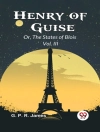In ‘Under Two Skies, ‘ E. W. Hornung weaves a compelling narrative that intricately explores themes of love, identity, and the duality of human experience. Set against the backdrop of both the English countryside and the varied landscapes of Australia, the novel employs a rich, descriptive literary style that immerses the reader in its vividly realized settings. Hornung’s ability to shift seamlessly between tones, from the serene pastoral to the rugged wild, mirrors the protagonist’s internal struggle, showcasing a masterful command of character development and emotional depth within the Victorian literary context. E. W. Hornung, best known for his creation of the infamous gentleman thief Raffles, was not only a writer of adventure but also a keen observer of human psychology and social mores. His own Anglo-Australian heritage and experiences undoubtedly informed his portrayal of the diverse landscapes and cultures represented in ‘Under Two Skies.’ The novel reflects Hornung’s dual affinity for both England and Australia, revealing how these influences shaped his literary vision and understanding of identity. Recommended for readers who appreciate richly layered narratives, ‘Under Two Skies’ is a profound exploration of the human condition. Hornung’s adept storytelling and thoughtful reflections on personal and cultural dichotomies will resonate with those interested in the complexities of belonging and love across distant horizons.
Despre autor
Ernest William Hornung, better known as E. W. Hornung, made his distinctive mark in the literary world of the late 19th and early 20th centuries. Born on June 7, 1866, in Middlesbrough, England, he crafted a niche for himself as a writer with a penchant for tales of adventure and crime. Hornung is perhaps most renowned for the creation of A. J. Raffles, a gentleman thief who first appeared in ‘The Amateur Cracksman’ in 1899, a character often considered the antithesis of his brother-in-law Arthur Conan Doyle’s Sherlock Holmes. Beyond Raffles, Hornung’s oeuvre encompassed a variety of genres. His 1890 publication ‘Under Two Skies’ brought together a collection of tales that highlighted his narrative versatility and ability to capture readers with his evocative descriptions and vibrant characters. His literary style often reveals deep psychological insights and social commentaries, stretching beyond mere entertainment to subtle examinations of the human condition and the social fabric of his time. Although Hornung’s work received varied critical attention, his contribution to English literature, especially in the arena of crime fiction, remains significant. He passed away on March 22, 1921, leaving behind a legacy of work that continues to engage and intrigue readers and scholars alike.












